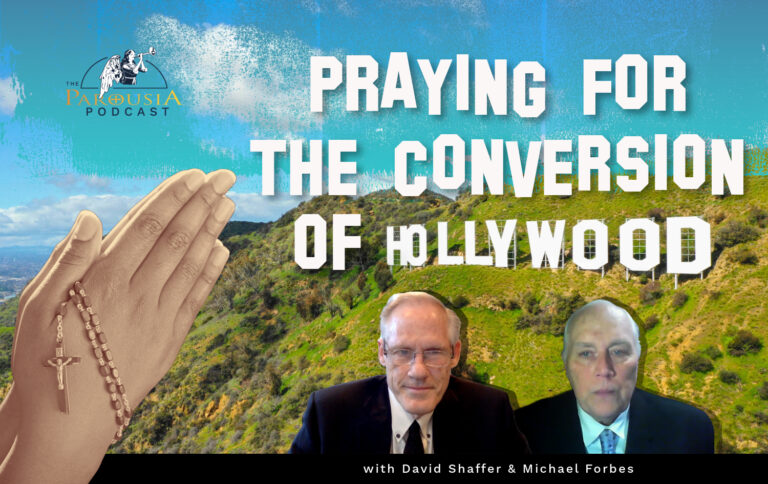This article first appeared at: catholic.com.
Atheists claim that religious faith requires no rational thought. But it’s atheism itself whose claims require no thinking.
Imagine you’re at a public gathering of religious believers—say, a pro-life event or something similar. Across the street you spot a group of atheist protesters sarcastically waving a sign: “Religion: because thinking is hard.”
It’s one of the more popular atheist mantras these days. Apparently, atheists think it embodies a truth worthy of signs, T-shirts, bumper stickers, and other in-your-face paraphernalia. A major Dutch atheist billboard campaign in 2009 used the line “Think for yourself,” as did a 2014 campaign in Chicago sponsored by the Freedom from Religious Foundation. As with other atheist slogans, it has persuasive force because it speaks to the experience of a lot of people, especially young adults. And yet other atheist slogans appeal to that budding sense of personhood of young adults. “Because imaginary friends are for kids” is good example.
After I’ve given a talk on apologetics, the parents or grandparents of millennials often say to me something like, “That would have been great for my son or grandson, but I really don’t need that apologetics stuff. I just have faith.” Chances are they’ve probably said the same thing to their son or grandson.
But this sort of response validates what the slogan claims: I believe because thinking is hard. And for a young adult who’s trying to be intellectually responsible, his response may simply be, “If that’s what religion is about, I don’t want anything to do with it.” No young adult wants to be a part of an anti-intellectual crowd.
Yet another slogan that makes religion appear as if it’s anti-intellectual is the one that states religion is mere wish fulfillment. When life is tough, we all have our coping mechanisms. Some, such as friendships, are based in reality, and some, such as drowning our sorrows in alcohol, are not. For some atheists, religion—and, in particular, belief in God—is a coping mechanism that isn’t based in reality.
This view gets traction from Sigmund Freud, the founder of psychoanalysis. In his book The Future of an Illusion, Freud writes:
[Religious beliefs are] illusions, fulfillments of the oldest, strongest, and most urgent wishes of mankind. . . . As we already know, the terrifying impression of helplessness in childhood aroused the need for protection—for protection through love—which was provided by the father; and the recognition that this helplessness lasts throughout life made it necessary to cling to the existence of a father, but this time a more powerful one. Thus the benevolent rule of a divine Providence allays our fear of the dangers of life.
For Freud, God is an invention of our imagination because of our desire for protection from the dangers of life. Religious belief therefore is seen as nothing but a human coping mechanism.
Arguments such as these that pit faith against rationality have caused many to not care about religion. So it’s imperative that we come up with adequate responses to help those who are affected by them, especially young adults.
‘Because thinking is hard’
The first thing we can say in response is that most atheists who chant this mantra need to look in the mirror. Consider that the American Atheists website defines atheism as “not an affirmative belief that there is no god” but “a lack of belief in gods.”
With this view, no thinking whatsoever is necessary as to whether we should embrace atheism. If atheism were merely a lack of belief, then a person with a severe mental handicap or even brain death would qualify as an atheist. By golly, we’d have to say the brainless scarecrow from Wizard of Oz was an atheist!
To say that atheism is a lack of belief, which avoids shouldering the burden of proof, seems to be just another way of saying, “I don’t want to think about it.” Perhaps the young atheist should change his sign to read, “Atheism . . . because thinking is hard.”
So, young adults, beware: you might leave a religious group in favor of atheism only to join a crowd that’s even more anti-intellectual than the one you kissed goodbye.
Here’s a second thought. Many atheists aren’t willing to consider claims of revelation because they think belief itself, or faith, which all alleged revelation entails to some degree, is not rational and contrary to our dignity as intellectual beings. As popular atheist Richard Dawkins stated in a 2013 Cambridge Union Society debate with Rowan Williams, the former archbishop of Canterbury, religion is “a betrayal of the intellect.”
To have faith is to believe something either based on the testimony of a source you deem credible or based on deductive reasoning that goes beyond available evidence. It is not the same as “knowing” something you have seen directly for yourself.
But do atheists who live by this slogan not believe anything based on the testimony of another? Possibly they’ve driven over a bridge without verifying for themselves that it’s safe, deducing that by its mere presence it is safe. Or maybe they even sought testimony from the architects and construction workers who designed and built the bridge to confirm that the bridge would support cars driving across it.
They may have even driven across the bridge to the grocery store to buy a can of mixed nuts. And I doubt that as they put the can in their basket they stopped and thought, “Oh, wait a minute. Can I believe the testimony of the company that put the label on the can? Are these nuts actually mixed? Have I betrayed my intellect?”
Moreover, I’m sure these atheists accept much of what science tells us about the world. But I’d be willing to bet they haven’t verified for themselves most of what they accept as scientific truth. Not even scientists can verify every scientific theory, past or present. Otherwise, they would never be able to make any progress.
So we see belief is not just a part of religion. It belongs to our everyday experience as human beings, providing us grounds to engage in all sorts of human activities.
Belief isn’t irrational
Belief (or faith) within religions that claim to have special revelation from God is simply a unique case of believing. The act of religious belief that accepts something as true is based on the testimony of the God of revelation and the testimony of the person who conveys that revelation.
Now, it’s true that we need to figure out whether such testimony is credible and worthy of belief. And that’s a crucial point in our quest to know, love, and serve the infinite God of revelation, whose existence has also been deduced via philosophical reasoning. We must apply the tools of reason to see if it’s reasonable to believe, for example, Jesus, Mohammed, or Joseph Smith.
If the testimony of an alleged revelation is not credible, then we shouldn’t believe it. But the reason for such a rejection wouldn’t be because belief itself is irrational. It would be because belief in a particular alleged revelation is unwarranted.
I don’t know about you, but such an approach to religion doesn’t seem to me to be a cop-out. Careful thinking is required when investigating which is the true religion. And even the beliefs that make up the religion require careful thinking to articulate and understand, at least the beliefs of a religion worthy of being the true religion. This is true of Christianity, as the Christian tradition has shown.
Thinking is hard, yes. But there’s no reason to assume that such a human endeavor can’t lead one to religion, especially the Christian religion.
What about the Freud’s claim, which many atheists adopt, that religion is mere wish fulfillment? How should we respond to this objection?
First, Freud’s “explanation” is merely an assertion. He doesn’t offer evidence for his claims. Former atheist and emeritus professor of psychology at New York University Paul Vitz writes:
Nowhere did Freud publish a psychoanalysis of the belief in God based on clinical evidence provided by a believing patient. . . . Freud’s general projection theory is an interpretation of religion that stands on its own, unsupported by psychoanalytic theory of clinical evidence (Faith of the Fatherless: The Psychology of Atheism).
Since Freud’s theory is an assertion without evidence, we can simply negate the assertion: “Belief in God is not a construct of the imagination.” Sometimes the only response an assertion requires is another assertion. If Freud’s not interested in giving evidence for his belief, then he can’t demand that we give evidence for ours.
Rational grounds for belief
But we don’t have to content ourselves with just contradicting Freud’s objection. We can go farther, in a few different ways, to show that it has no persuasive force.
Consider that Freud assumes that belief in God is irrational. The need for a psychological explanation for belief in God would arise only if there were no rational grounds to believe.
But theists throughout the centuries have provided several philosophical arguments to establish rational grounds for belief in God (e.g., the fine-tuning argument) and certain knowledge that God exists (e.g., Aquinas’s Five Ways). These arguments have persuaded many to abandon their atheism.
Perhaps there are some believers who would fall under Freud’s explanation. But that doesn’t mean that all belief in God is an ungrounded construct of the imagination.
There’s another assumption the argument makes that we could challenge: namely, we should reject religion because it brings us comfort. But why should comfort be the reason to reject religion? How ridiculous would it be to reject every idea that brings us comfort because it brings comfort? Atheists don’t do that. No one does.
A third response is that this sort of objection cuts both ways. Perhaps it’s true that fear of death, a desire for justice, and a desire to see our lives as having meaning and purpose leads us to believe in a God who made us for eternal life and will reward and punish us based on our deeds. But isn’t it also true that a desire to be free from moral constraints and the oversight of a transcendent God could lead us to think there is no God, and that we’re just clever animals who devise purpose and meaning for our own lives?
Perhaps people reject God because they don’t take comfort in the idea of a cosmic judge punishing them for acting against an objective moral law. If the fear of death could explain belief in God, then the fear of punishment could explain the choice not to believe in God. It cuts both ways.
This idea of fear of punishment leads to yet another way we can respond to this sort of objection. Notice that the objection asserts that belief in God is a construct of the imagination meant to lessen our anxieties about the problems of life and bring comfort against the fear of death.
But the person who makes this argument fails to consider that most religions demand beliefs and practices that are unpleasant. Traditional monotheistic religions deem eternal damnation in hell an essential element of their belief systems. Catholicism demands fasting and abstinence. Christians are supposed to be willing to lose everything, even their life, rather than deny Jesus.
Are we to think religious people believe and do these things to bring themselves comfort? Not likely.
Getting it backward
Finally, as shown in arguments for God’s existence from the desire for happiness, we can say Freud and his atheist followers got it backward. The desire for God is evidence for God’s existence, not against it.
By nature, we have a craving for infinite goodness. This craving is manifest when we don’t experience the perfect happiness we thought we’d get from goods in this life such as money, fame, and power. Our dissatisfaction with the limitations of these goods reveals that we desire a good that won’t leave us wanting. That’s infinite goodness.
Now, if nature does nothing in vain, then it follows that there must exist a corresponding satisfaction for that desire—namely, God.
Therefore, rather than our desire for an all-good God explaining why we think God exists, it’s the infinite good, or God, that explains why we desire God. He’s the one who plants the desire for the infinite good within our hearts to draw us to himself (Catechism of the Catholic Church 27).
Freud may have missed the mark on the “wish” part of his wish-fulfillment theory, but he hit the bullseye on the “fulfillment” part. God is not just some “wish” our wounded hearts make up—but he certainly does fulfill all our deepest, most natural desires. As St. Augustine said regarding God, “Our heart is restless until it finds its rest in thee.”
Young adults who desire to place religion, and in particular belief in God, at the core of their lives need not fear to confine themselves among a crowd of anti-intellectuals. In fact, true religion would not welcome an anti-intellectual spirit, since the intellect is a gift the Creator has endowed us with, along with the desire to use it and perfect it in knowledge of the truth.
So, in response to the mantra “Religion . . . because thinking is hard,” we can tout our own mantra, “Religion…because thoughtful belief is good.” And in response to the slogan “Religion . . . because we need to fulfil our wishes,” we can say, “Religion . . . because it’s the fulfillment of what we are as human beings.”
SIDEBAR
Is Belief a Cultural Artifact?
Another attack on religion some atheists make is that religious convictions are nothing but the product of social factors that can vary from place to place. Often it takes the following form: “If you grew up in another country with a different set of religious beliefs, then you’d hold the beliefs of that place and time in which you live.”
Here are a few ways we can respond.
First, it’s simply not true that all religious believers hold their beliefs merely because of the circumstances of their upbringing. There are many people who believe that God exists because they have thought long and hard about the question, even doing so in environments that were antagonistic to belief in God.
A second response is that this argument is arbitrary in that it is only applied to religious beliefs based on social environment and not, for example, moral views. Should we conclude that our belief that women have equal rights is irrational, since on this view such a belief is only an accident of our upbringing, and we probably wouldn’t hold this belief is we grew up in Saudi Arabia? Of course not!
Finally, all this argument does is attempt to explain the motivations behind religious beliefs. It has no bearing on whether the beliefs are true, which is the real question. Just because a belief emerges from a society into which a person is born, it doesn’t follow that the belief isn’t true.
Suppose, for example, I convince you without evidence that it’s raining outside. Does the lack of evidence mean that you believe something that is untrue? No, it doesn’t—it could very well be raining outside, in which case your belief would be true. So, the motivations behind a person’s religious beliefs don’t have any bearing on whether a claim is true or not. And to focus on motivations is simply a distraction from the real question.
Why God Still Matters
– Karlo Broussard (DVD)
Have you noticed how some of the New Atheists don’t even bother trying to disprove God’s existence? Your arguments in favor of God don’t even deserve a reply, they say, because not only does God not exist—he doesn’t even matter.
We don’t need God to explain the universe, they say. We don’t need him to be moral or happy. And we don’t need him to guide us or help figure things out—science can take care of that. Take away the need for God, they conclude, and the human urge to believe in him disappears.
In Why God Still Matters, apologist Karlo Broussard doesn’t let them off so easy. In this engaging video he takes apart the premises of those who say God’s irrelevant, showing you how you can explain to atheists:
- That science can say a lot about the created world but not why it’s there in the first place
- Why thinking that science has all the answers is itself a kind of unscientific blind faith
- How morality and happiness are possible to some degree without God, but hopelessly limited
- Many positive reasons to conclude that God not only matters, but that he is real
…and much more. Don’t let atheists shut down the argument before it begins! Watch Why God Still Matters and be ready to demonstrate why God is just as important as he ever was—in fact, in today’s world, more important than ever.










Recent Comments